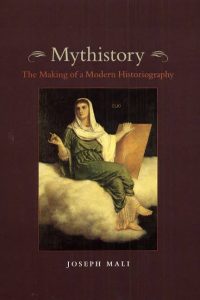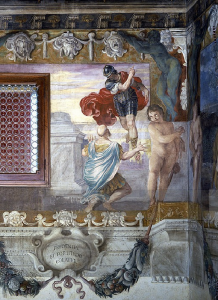141. The comparison concludes with the following exchange between Cicero and his brother Quintus (1.5): Q. ‘I understand that in your opinion different laws obtain in historiography and poetry’. M. ‘Yes. In history most things have their basis in veritas, whereas in poetry they have it in pleasure, although in both Herodotus, the father of history, and Theopompus there are countless fabulae.’ Cicero’s reply here has naturally been used by those scholars who wish to assert that his views on historiography are similar to our own . . . ; yet I am certain that they are misinterpreting the word veritas here. The context, and in particular the reference to fabulae, suggests that veritas=‘real life’, . . . That is: veritas embraces the verisimile and is contrasted with fabula, . . . Cicero is drawing a comparison between ‘credible’ texts on the one hand, a category into which historiography normally falls, and the far-fetched Roman stories . . . on the other, with which the fabulae of Herodotus and Theopompus have everything in common.
. . .
147. Dion. Thuc. 9 refers to histories as ῥητορικάι ὑποθέσεις an extremely interesting combination of words . . . , though he elsewhere (Ep. Pomp. 3=2.384 Usher) refers to the works of Herodotus and Thucydides as ` ` ` ` Pliny (Ep. 5.8.9) says that ‘historiography and oratory have, of course, much in common’; Hermog. De Ideis 417.28–418.1 says that ‘historians should be set alongside panegyrists, as is in fact the case, I think: their aims are amplification and entertainment’ etc.
. . .
150. 1.70 ‘The poet is a very close relative of the orator’, 3.27 ‘poets have the closest relationship with orators’; further examples in Kroll on Or. 66.
. . .
154. Quint. 12.11.4. Cf. Theon 70, who says that training in rhetoric is required by an historian.
. . .
156. Arist. Or. 49, Marc. Vita Thuc. 41.
It is, I think, significant that Atticus’ remark arises immediately out of a comparison between historiography and poetry.141 When we recall the close connections between Homer and both Herodotus and Thucydides (above . . .), it can be inferred that historiography was originally seen in terms of poetry and that there was a continuing debate as to their precise relationship and proximity. Thus Aristotle in the fourth century BC and Polybius in the second each maintained that there were differences between historiography and poetry, while much later Quintilian stated the opposite, that ‘historiography is very close to poetry and is rather like a poem in prose’. Yet by Aristotle’s time the historian Ephorus had also begun to compare historiography and oratory, something in which he was followed by the historian Timaeus. . . . Dionysius in the first century BC was followed by Pliny the younger and Hermogenes in the second century AD in seeing historiography as closely allied to oratory.147
There were thus two main alternative ways of defining historiography, and it is hardly surprising that Cicero, the outstanding Roman orator, should prefer the latter definition to the former. After all, it is clear from numerous passages that he seriously contemplated writing history himself.148 But since the earlier discussion in the De Legibus concerned the relationship between historiography and poetry, quidem (‘at least’) at 1.5 is merely Atticus’ acknowledgement that Cicero belongs with those who prefer the alternative definition of historiography as oratory.
Lest it be imagined that there is some essential contradiction between these two definitions, two passages of the De Oratore, where oratory is seen in terms of poetry, show that this is not so.150 Though we today see poetry, oratory and historiography as three separate genres, the ancients saw them as three different species of the same genus — rhetoric. All three types of activity aimed to elaborate certain data in such a way as to affect or persuade an audience or readership. So when in Cicero’s Brutus (43) Atticus says that the historians Clitarchus and Stratocles ‘were able to elaborate Themistocles’ death in a rhetorical and tragic manner [rhetorice et tragice]’, the two terms represent, not a contradiction, but alternative ways of describing the same phenomenon.
Moreover, the Roman system of education encouraged young men to study and emulate the works of famous orators, historians and poets, with the result that future orators, historians and poets were all reared in the same system. Indeed the sixth-century AD historian Agathias claimed that in his youth he had concentrated exclusively on poetry but that a friend encouraged him to write history by saying that ‘there is no great gulf between poetry and historiography: they are close relatives from the same tribe and separated from each other only by metre’. And in exactly the same way Quintilian was able to say that when an orator retires from his profession, he can devote himself to the writing of history.154 It was thus perhaps the educational system as much as anything which ensured that the debate on the real nature of historiography continued. Aristides in the second century AD maintained that historians ‘fall between orators and poets’, while four centuries later the biographer of Thucydides, Marcellinus, said that ‘some people have ventured to demonstrate that the genre of historiography is not rhetorical but poetic’.156
(Woodman, 99f)
Woodman, A. J. 2004. Rhetoric in Classical Historiography: Four Studies. London : New York: Routledge.


